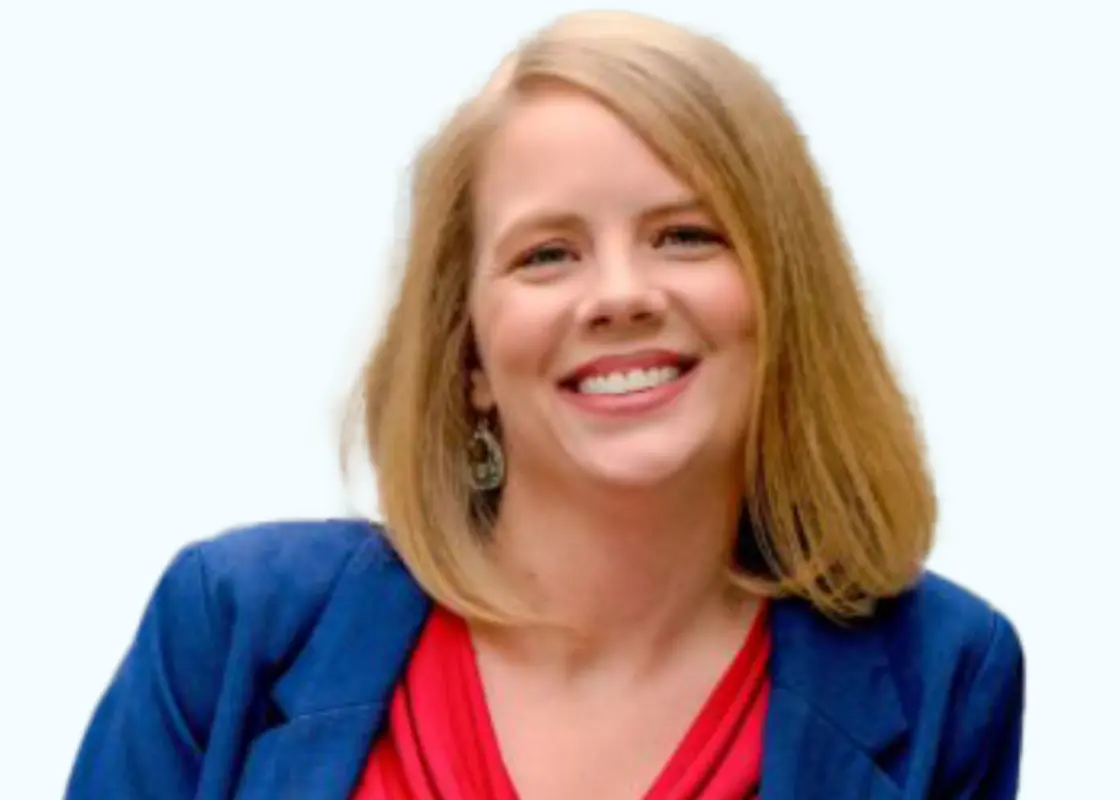Cayuga Hospitality Consultants Panel: Rethinking Technology
In November 2022, Cayuga Hospitality Consultants led a panel about rethinking technology. Stephanie Smith, Partner at Cayuga Hospitality Consultants and CEO of Cogwheel Marketing and Analytics, moderated these exceptional panelists:
- Dax Cross, CEO, Revenue Analytics
- Kathryn Bryant, Executive Director – Travel and Hospitality Strategy, Oracle
- Diane Estner, HFTP + DANNI Enterprises
Hotel Technology Adoption
Q: The hospitality industry gets a bad rap for being late adopters to technology. What do you see as the biggest obstacles to innovation in the hospitality industry?
Diane Estner: Nobody wants to be first. Everyone wants to change, innovate, but nobody wants to be first at this.
It’s very fragmented for innovators to find their way to our industry due to so many decision makers. You have the management office that makes decisions, an ownership group, and the brands that require approval etc. We make it difficult. Add in the mix that we also have legacy minded decision makers that want to do things the same old way but expect a different result. No one wants to fail but we need to try new things to improve and innovate.
Hospitality is one of the few industries that doesn’t have a unified integration standard. For example in health care people that write software, have an industry standard.
Kathryn Bryant: I have much of the same: Finance will buy something, HR will buy something, revenue management will buy something, they won’t talk to the right systems. And it becomes this patchwork wheel and we as an industry don’t take time to really put together a broad solution that would work across the industry.
So you need to have someone who can bring a broad view of this. If finance is only looking for the cheapest thing and it’s not working, it will ultimately going to cost them a lot of money, because they didn’t step back, take the time to really put together a forethought plan.
Dax Cross: I think owners embrace a culture where you spend money on customer facing stuff, but the back office of this hotel is tiny and gross, because you don’t want to spend money on something not customer facing.
But the industry is losing out on a lot of hotel technology that could make that back office operation so much more efficient, drive revenue growth, etc.
This kind of approach with trying to save money on technologies is actually doing things another way around. It’s actually very costly to the industry and particularly in a time when you need efficiency, coming out of pandemic with shortages obviously on the front line, but even across the back office as well.
Artificial Intelligence in Hospitality
Q: I believe technology should reduce friction. Where are places artificial intelligence or machine learning should (or should not) be deployed?
Dax Cross: There’s a lot of bad technologies in hospitality and it gives people that bitter taste but the point is that, when you have good software, it’s intuitive. People always ask us “Well, what do you do for a training, you know training is very important with the revenue system” and we say “Well it shouldn’t be”.
When you download an app on your phone, are you doing training for it? Of course not. We use modern software all the time and we don’t need any training, because they’re intuitive and they make sense.
It can be true for other technologies as well, even something that is relatively complex like pricing in revenue management.
Diane Estner: I’m sure we’re all been to a website and had a little chat window open up like “how can I help?”. So instead of waiting and trying to reach out to someone, we can use this to fulfill our need by this kind of AI bot.
Dax Cross: I’d like to share a story about a company using good technology poorly. We had this situation with one of our proprietary revenue management systems. We had a user, who was complaining and she said this software is just broken, it doesn’t make sense at all. And we said “Tell us what’s going on” and she said “My hotel is in Boston and for the week of the Boston marathon the system is telling me to lower my price. So this thing is a piece of junk”.
So we went and we investigated and the issue was they put a ceiling in the system. Once removed, the system said to raise your pricesthat week.
Diane Estner: You know hospitality is about people and I don’t think it will ever go away. So we can all agree that we’re all in a business of people and creating experiences and simplifying things. And one of the things that we also will be talking about is that the young people entering our industry are born of the digital age… they travel differently and as a growing g workforce, they have different workplace expectations and needs.
Q: Is there any way where you see an opportunity either for AI or Machine Learning?
Diane Estner: I see it in most everything but near term loyalty, supply chain and staffing, as well.
As an example, for a fast food group this can help identify busiest times and have the product to sell and ensure staff is scheduled and working to meet the peak periods, and having the analytics, the machine learning and the understanding of the business.
It doesn’t make sense to have somebody on the excel, trying to predict the future, analyze what’s in town, understand what season it is etc.
It’s both historical and futuristic. This is in the simplest form a way to look at things.
Dax Cross: If you take a person that knows the hotel industry, they could actually do it manually, and they could do a good job of it. But the reality is that it takes much more time and it’s better to have an automatic system that does an analysis for you.
Security in Hospitality
Q: Security isn’t a problem, until it is. What strides should all businesses in hospitality be doing to get their house in order?
Kathryn Bryant: This is a big deal, especially when it comes to technology, we’ve all heard some pretty massive breaches, even recently. So my top points are:
- Misconfiguration: You need to make sure that you prevent and find things that are misconfigured, since that’s an easy way in the system. When I’m talking about misconfiguration I mean when you have integration problems or if you don’t have a system set up correctly, it creates weak points for people to get in.
- Controlling access to different environments: Just because somebody can have access to a system, should they? Probably not. The more you limit the access to different systems, the safer you are, because it’s often a human error.
- Encrypting: Making sure that you encrypt everything across your organization. Having BitLocker, passwords. It’s really important to make sure that only the right person is using this technology for the right reasons.
Dax Cross: I think my top recommendation is to make sure that you’re taking advantage of softwares and service and cloud. Because we get to rely on AWS and they know about the security much more than us. To Kathryn’s points, you get the benefit of that and then also if you take advantage of things like single sign on, you’re just limiting the number of access points into your system
Diane Estner: I think there has to be pretty strong internal philosophies. I mean it could be as simple as a thumb drive that somebody takes to work at home, because they want to finish up some stuff or they leave a laptop somewhere in a car. But we’re obviously talking about cyber security, but in my opinion there’s also an obvious physical security of a facility. And at the end it all comes up to clear communication.
Dax Cross: Phishing is another area, where it gets sophisticated and we’ve had our company going through some training on phishing. That’s the point in communicating, getting everyone together, getting on the same page, let’s be very clear to our people.
Generational Shift
Q: What impact does technology have on the generational shift as it relates to labor/culture/training?
Kathryn Bryant: We all learn in bite size snippets more than ever, so making sure that that’s the way which we make training, whether or not it’s on technology or on customer service, very rarely you’re going to find someone, who will sit in a room after we watch TikTok or read Twitter.
All of these different technologies that use this bite size pieces of information and that’s the way we learn now. We’ve got to adapt to that.
It’s good to gamify systems that could help not only with training, but creating culture. Even if it’s just making sure that we’re connecting, when there’s so many of us working remotely.
Diane Estner: Gamification in terms of a reward learning and the generational differences, you do need to create a culture and connection. So part of this is getting people to engage and kind of getting to know each other and personalize, because they don’t see each other every day. Gamification can motivate while creating internal loyalty and a reward system.
Dax Cross: I think it’s very interesting, because we’ve talked about how hospitality is traditionally lagered and adopting technology, but you look at this new generation coming into the workforce and they expect to have an app for everything. So they’re not going to be happy and do things manually and do repetitive things, because it’s just not the way that they’ve grown up.
I think that you will see that to retain people you’re going to have to provide them with the technology to let them do their jobs.
Diane Estner: And that’s not just as a labor, as a workforce, but also as a customer. Some of the statistics around Gen Z better than 80% are into side hustles. You know, they don’t work 9-5 Monday to Friday. They really are more focused on obviously being productive, but the work life balance and their quality of life matters to them. It’s going to require a lot of reimagination, not only in a workforce, but also in engaging as guests.
Technology Trends for the Future
Q: What technology trends have been accelerated due to the pandemic, and what do you predict will be a trend in the near future?
Diane Estner: There’s something called SSI (Self-Sovereign Identity), which means instead of people housing my personal information, I am in charge of what I share and I’m authenticated, it’s really me. So there’s a number of things and initiatives that are coming through. I think you’re going to continue to see a lot of mobile, everything is being mobile.
Kathryn Bryant: I tell people at Oracle that we would be innovative, if we would just take the industry off excel. That’s for starters.
But in addition to that you will see a lot of innovation around loyalty, because that’s where a lot of the focus is. United and Marriott have a very strong partnership and there were partnerships before, but the technologies that they are using allows points to be transacted so easily, is new. I think that you’ll see a lot more of bringing in more customers and generational customers that can use their points wherever.
Delta has a new system where you can go up to a kiosk and say “I’m going to Atlanta”, so they will show you your boarding pass on a screen above your head, but only you can see your information and it will point you in the direction of your gate. It’s not a completely new technology as well, but there could be a lot of uses of it within the hospitality industry.
Diane Estner: One of the things that we’ve seen in HITEC was discussing using NFTs, when the whole platform of loyalty is shifting. So instead of me spending all of this time and money to reach a certain level of loyalty, why can’t I just buy into loyalty and be given all these amenities and services.
I can actually transfer this, cause it’s on blockchain. I can transfer some of my amenities, which I own, to my friend, who will be traveling, because for example I don’t use them at the moment. So you will see some real shift.
Dax Cross: When I thought of post-pandemic trends, I actually thought about how work is getting done in hospitality. The biggest trend that we saw is just things are moving above property. As the pandemic accelerated people to cut heads and do more with less. I think we should expect that we’re going to continue to have the days of on-property director, finance director, sales, revenue management, those are just going to be gone. And everything will be above property and that is going to require a lot more technology, because you just don’t have the time in a day to do that job, which used to be a full time job for one hotel, now you got 10-15 hotels.
Panelist Info:
- Stephanie Smith, CEO, Cogwheel Marketing & Analytics, Moderator
- Dax Cross, CEO, Revenue Analytics
- Kathryn Bryant, Executive Director – Travel and Hospitality Strategy, Oracle
- Diane Estner, DANNI Enterprises Consulting Group
About the author
Stephanie Sparks Smith is CEO and Digital Matriarch at Cogwheel Marketing™️ and partner and consultant at Cayuga Hospitality Consultants. Her recent passion includes developing Cogwheel Analytics; a hotel digital marketing reporting and business intelligence (BI) tool that aggregates data from multiple sources to allow companies to identify trends and opportunities in their online presence. Her team at Cogwheel Marketing help management companies identify the gaps between brand and hotel level marketing to drive incremental revenue to their individual Marriott, Hilton, IHG and Hyatt hotels. She is engaged on the HSMAI Marketing Advisory Board Member where she has led committees around DEI, Rising Leaders plus has her CHDM certification. Stephanie is a regular on the speaking network at many hospitality events and conferences highlighted here. Stephanie has an undergraduate degree in Hospitality Tourism Management from Virginia Tech and an MBA from University of Texas at Dallas plus has an Advanced Revenue Management Certificate from Cornell.
Contact Us




